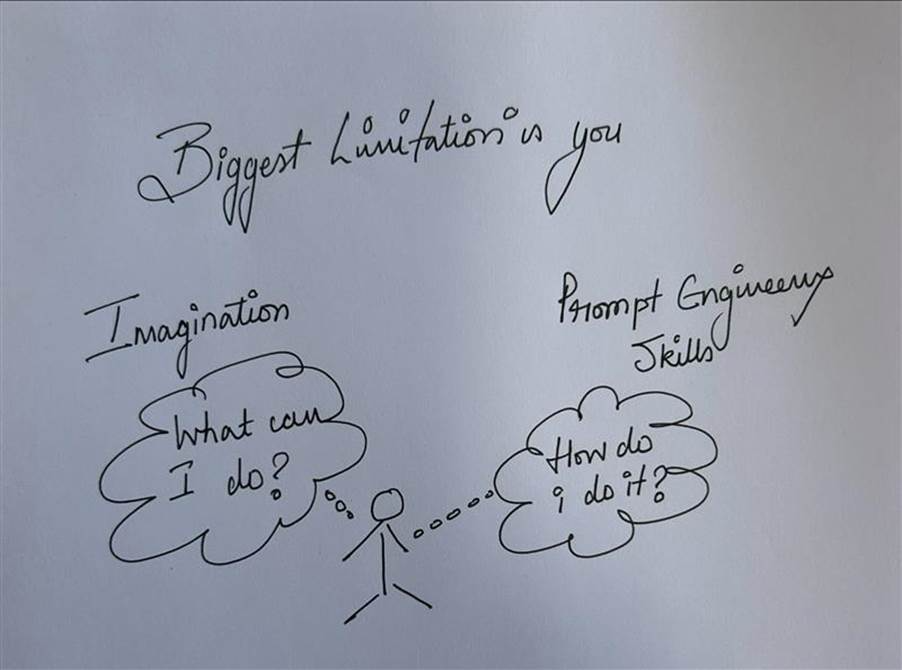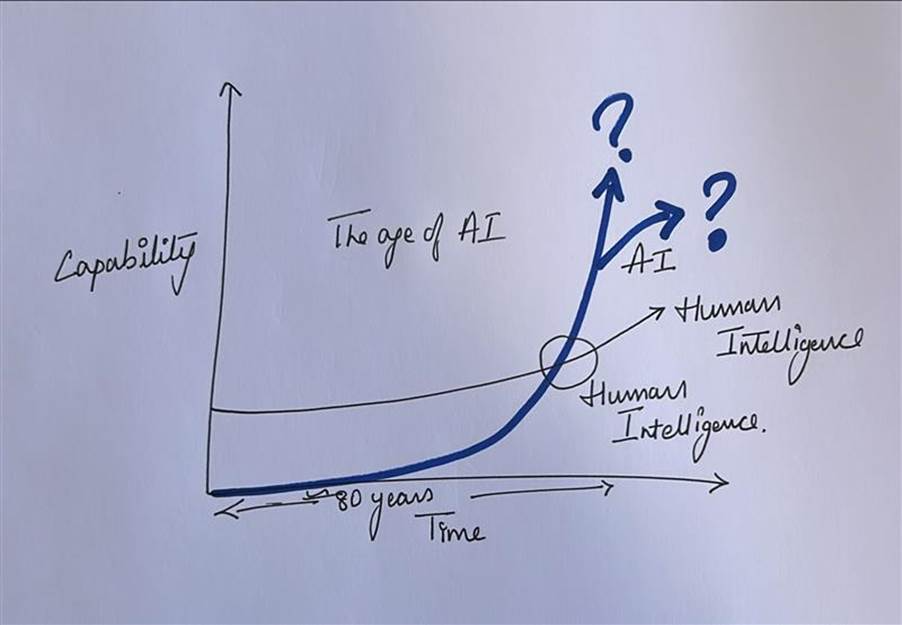Leading in the Age of AI: Conducting the Future of Work
- Ritu Chowdhary

- Jul 4, 2025
- 3 min read

Imagine stepping onto the stage of a grand concert hall. In front of you is an orchestra—hundreds of instruments, each capable of producing incredible music. But there’s a twist: this orchestra doesn’t need years of training. It can instantly adapt, compose new symphonies, and even play in styles never heard before.
This isn’t a fantasy. This is what generative AI is doing in the world of work. AI isn’t just an automation tool—it’s an intelligent collaborator that is transforming how we create, analyze, and innovate.
As someone who has navigated the fintech and gaming industries, I’ve seen how disruptive technologies reshape the way we work. AI isn’t just another technological wave; it’s a fundamental shift that requires leaders to rethink how they guide teams, make decisions, and drive business value.
The AI Revolution: From Assistants to Co-Workers
For years, AI has been playing in the background—filtering spam, recommending content, processing transactions. But generative AI is different. It’s not just categorizing data; it’s generating new ideas, content, and strategies in real-time.
This means AI is no longer just a tool—it’s a co-worker. But like any team member, AI has strengths and weaknesses:
✔️ It’s incredibly fast, but it can make errors.
✔️ It’s highly knowledgeable, but it can be biased.
✔️ It’s always available, but only as good as the prompts it receives.
This last point is crucial. The ability to effectively communicate with AI—often called prompt engineering—is becoming as essential as reading and writing. Just as early internet users had to learn search engines, today’s professionals must learn how to interact with AI to unlock its full potential.

AI Won’t Take Your Job, But…
There are two common mindsets around AI:
❌ Denial: “AI can’t do my job.”
❌ Panic: “AI will replace me.”
Neither is productive.
The reality? AI won’t replace you, but someone who knows how to use AI effectively might. The best approach is one of curiosity and adaptation. AI will amplify human potential, making individuals and organizations significantly more productive.
Leaders must recognize that:
The human brain has evolved over millions of years, making us the most intelligent species on Earth. Yet, our intellectual capabilities have remained largely unchanged for thousands of years.
Meanwhile, computers—barely 80 years old—have rapidly advanced. With generative AI, they now fluently communicate in human languages and perform complex intellectual and creative tasks once exclusive to humans.
We stand at a pivotal moment where AI outperforms humans in some areas while we still lead in others. However, AI is evolving exponentially, while human intelligence remains static.

The critical question is whether AI's rapid advancement will continue indefinitely or plateau. Regardless, we are entering a new era that will redefine intelligence, creativity, and human-machine collaboration.
✔️ Developers who embrace AI will write better code, faster.
✔️ Testers who integrate AI into quality assurance will identify issues faster and improve software reliability.
✔️ Organizational leaders who leverage AI will make data-driven decisions, streamline operations, and drive innovation at scale.
✔️ Doctors who use AI will diagnose diseases more accurately.
✔️ Marketers who leverage AI will craft more effective campaigns.
The professionals who learn to work with AI will thrive. Those who ignore it risk becoming obsolete.
The Rise of AI Agents: From Passive to Proactive
Today, AI waits for us to give instructions. The next evolution? AI will take initiative.
Imagine an AI that doesn’t just respond to your questions but:
✔️ Monitors market trends and adjusts strategies before you ask.
✔️ In testing, AI agents will proactively identify performance bottlenecks, predict failures, and suggest optimizations before users encounter issues.
✔️ Automates entire workflows, from drafting reports to managing customer interactions.
✔️ Collaborates with other AI models to seamlessly integrate across teams.
This shift means leaders must go beyond simply using AI and start building AI-powered organizations.
The question is: Are you preparing for this future, or are you waiting for it to happen to you?
Leading in the Age of AI
The most effective leaders of tomorrow won’t necessarily be AI experts—they’ll be the ones who can bridge human creativity with AI capability. This means:
✔️ Developing AI literacy—Understanding what AI can (and can’t) do.
✔️ Building AI-first teams—Embedding AI into workflows and decision-making.
✔️ Fostering adaptability—Encouraging teams to experiment and iterate.
✔️ Prioritizing ethical AI—Ensuring fairness, security, and responsible deployment.
✔️ For QA and testing leaders, this means integrating AI into testing strategies to improve software quality, shorten release cycles, and enhance user experience.
AI isn’t sitting quietly in the background anymore—it’s actively shaping our decisions, accelerating innovation, and redefining what’s possible.
The only question is: Are you ready to lead in this new world?
Let’s connect. How are you using AI in your work? Where do you see its biggest impact? Drop your thoughts in the comments!



Comments